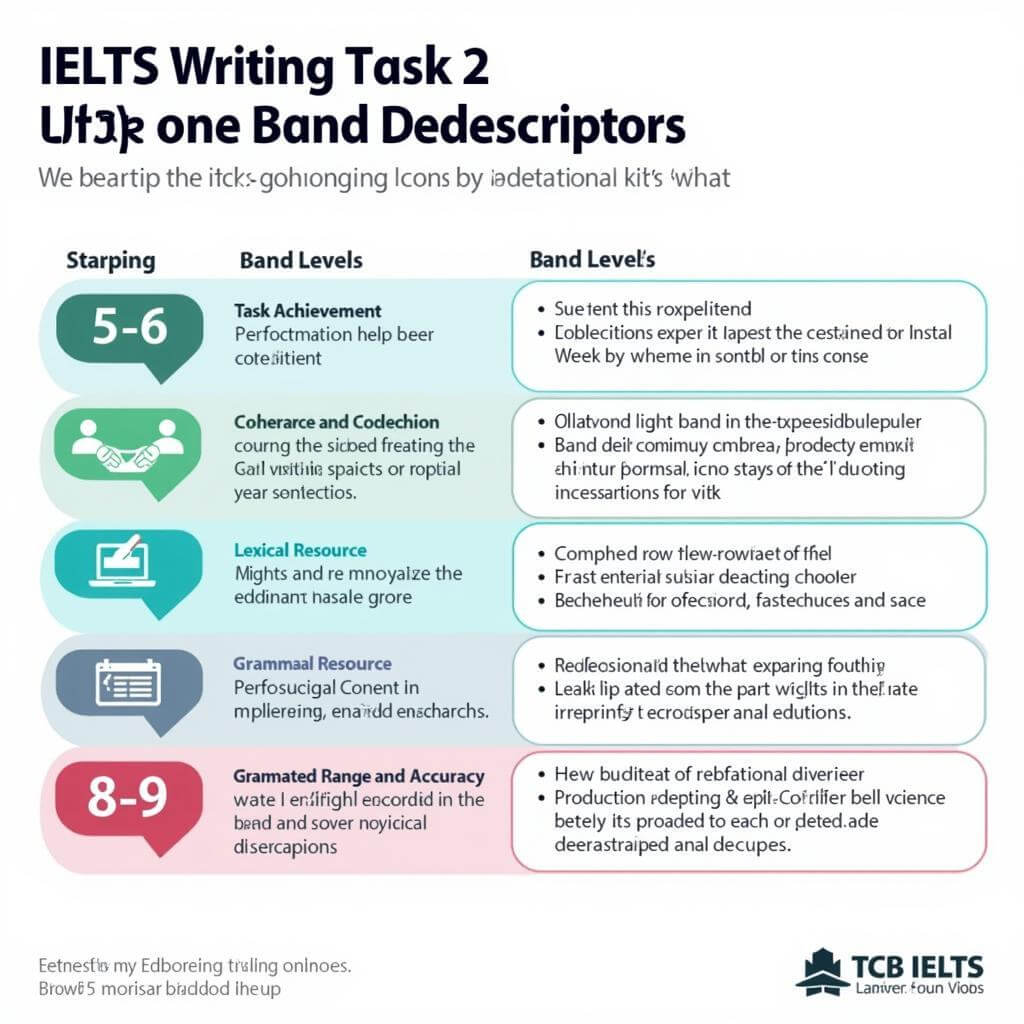Food labeling is a topic that frequently appears in IELTS Writing Task 2 exams, particularly in questions related to health, consumer rights, and international standards. Based on analysis of past IELTS exams and current global trends, the issue of standardizing food labeling globally is likely to continue being a relevant and important subject. Let’s examine a sample question that closely resembles those seen in actual IELTS tests:
Some people believe that food labeling should be standardized globally to help consumers make informed choices. Others argue that each country should have its own labeling system. Discuss both views and give your own opinion.
Analyzing the Question
This question requires candidates to:
- Discuss arguments for global standardization of food labeling
- Discuss arguments for country-specific labeling systems
- Provide their own opinion on the issue
It’s important to address all parts of the question and provide a balanced discussion before stating your personal view.
Sample Essay 1 (Band 8-9)
In an increasingly globalized world, the debate over whether food labeling should be standardized internationally or remain country-specific has gained significant attention. While both approaches have their merits, I believe that a global standardization system would ultimately be more beneficial for consumers and the food industry alike.
Proponents of global standardization argue that it would provide consistency and clarity for consumers worldwide. With uniform labeling, people could easily understand nutritional information and ingredients regardless of where they purchase their food. This is particularly advantageous for travelers and expatriates who may struggle with unfamiliar labeling systems in foreign countries. Moreover, a standardized system could facilitate international trade by reducing barriers related to packaging and labeling requirements, potentially leading to a wider variety of food products available in global markets.
On the other hand, advocates for country-specific labeling systems contend that this approach allows for greater flexibility in addressing local dietary concerns and cultural preferences. For instance, countries with high rates of certain health issues might want to emphasize specific nutritional information relevant to their population. Additionally, local labeling systems can accommodate linguistic differences and cultural sensitivities that may not be adequately addressed by a one-size-fits-all global standard.
However, I believe that the benefits of global standardization outweigh the drawbacks. While it’s true that local concerns are important, a well-designed global system could incorporate flexibility for regional adaptations while maintaining overall consistency. For example, a standardized format could include space for additional information relevant to specific countries or regions. Furthermore, the advantages of improved consumer understanding and simplified international trade would likely result in better-informed dietary choices and increased food security on a global scale.
In conclusion, although country-specific labeling systems have some merits, I am of the opinion that a globally standardized approach to food labeling would be more beneficial in our interconnected world. It would promote clarity for consumers, facilitate international trade, and could still allow for necessary local adaptations. As the global food market continues to expand, a unified labeling system seems not only beneficial but increasingly necessary.
(Word count: 345)
Sample Essay 2 (Band 6-7)
Food labeling is an important topic that affects people all over the world. Some people think it should be the same everywhere, while others believe each country should have its own system. Both ideas have good points, and I will discuss them before giving my opinion.
Those who support global standardization say it would make things easier for everyone. If all food labels looked the same, people could understand them no matter where they are. This would be good for travelers and people who move to different countries. It might also help companies sell their products in more places because they wouldn’t need to change their labels for each country.
On the other hand, people who want country-specific labels think it’s better to focus on local needs. Different countries have different health problems and eating habits. For example, a country with many people who have diabetes might want to make sugar content very clear on labels. Also, each country has its own language and culture, which can be important for food labels.
In my opinion, I think a mix of both ideas could work well. We could have some parts of labels that are the same everywhere, like how calories and main ingredients are shown. But there could also be space for each country to add extra information that’s important for their people. This way, we get the benefits of both systems.
To conclude, while both global and local food labeling have advantages, I believe a combined approach would be best. This would help people understand food labels wherever they go, but also make sure that important local information is included.
(Word count: 276)
Sample Essay 3 (Band 5-6)
Food labels are important for people to know what they eat. Some think all countries should use the same labels, but others say each country should have its own. I will talk about both ideas and give my opinion.
People who want the same labels everywhere say it’s good because it’s easy to understand. If you go to another country, you can still read the food labels. This is helpful for travelers and people who move to new places. It might also help companies sell food in different countries more easily.
But some people think each country should have its own labels. They say this is better because different places have different foods and health problems. For example, if a country has many people with heart disease, they might want to show fat content very clearly on labels. Also, countries have different languages, so they need labels in their own language.
I think both ideas have good points. Maybe we could have some parts of the label the same in all countries, like how they show calories. But we could also let each country add some of their own information. This way, we can understand labels in other countries, but also get important local information.
In conclusion, I believe a mix of global and local labeling would be best. It would help people understand food wherever they go, but also give important information for each country.
(Word count: 228)
Explanation of Band Scores
Band 8-9 Essay:
This essay demonstrates:
- Clear organization with well-developed ideas
- A wide range of vocabulary used accurately (e.g., “globalized,” “expatriates,” “facilitating”)
- Complex sentence structures (e.g., “While both approaches have their merits, I believe that…”)
- Coherent arguments with relevant examples
- A clear position throughout the essay
Band 6-7 Essay:
This essay shows:
- Clear overall structure but less sophisticated development of ideas
- Good vocabulary with some attempts at less common words (e.g., “standardization”)
- A mix of simple and complex sentences
- Relevant ideas but with less detailed support
- A clear opinion, though less consistently maintained throughout
Band 5-6 Essay:
This essay exhibits:
- Basic organization with simple development of ideas
- Limited vocabulary, mostly common words
- Mainly simple sentence structures with some errors
- Basic arguments with minimal elaboration
- An opinion is given but not well supported
 IELTS Writing Task 2 Band Descriptors
IELTS Writing Task 2 Band Descriptors
Key Vocabulary to Remember
- Standardization (noun) – /ˌstændədaɪˈzeɪʃən/ – the process of making things of the same type have the same basic features
- Consistency (noun) – /kənˈsɪstənsi/ – the quality of always behaving or performing in a similar way
- Facilitate (verb) – /fəˈsɪlɪteɪt/ – to make an action or process possible or easier
- Expatriate (noun) – /eksˈpætrɪət/ – a person who lives outside their native country
- Flexibility (noun) – /ˌfleksəˈbɪləti/ – the ability to change or be changed easily according to the situation
- Accommodate (verb) – /əˈkɒmədeɪt/ – to provide space or capacity for or adapt to new conditions
- Linguistic (adjective) – /lɪŋˈɡwɪstɪk/ – relating to language
- Adaptation (noun) – /ˌædæpˈteɪʃən/ – the process of changing to suit different conditions
- Interconnected (adjective) – /ˌɪntəkəˈnektɪd/ – having different parts or elements connected or related
- Unified (adjective) – /ˈjuːnɪfaɪd/ – made or become united, uniform, or whole
In conclusion, the topic of global food labeling standardization is likely to remain relevant in IELTS Writing Task 2. To prepare, practice writing essays on related topics such as:
- The impact of food labeling on consumer health choices
- The role of government in regulating food information
- Challenges in implementing international food standards
- The balance between consumer rights and business interests in food labeling
We encourage you to practice writing an essay on the given topic and share it in the comments section for feedback and discussion. This active practice is an effective way to improve your IELTS Writing skills.


